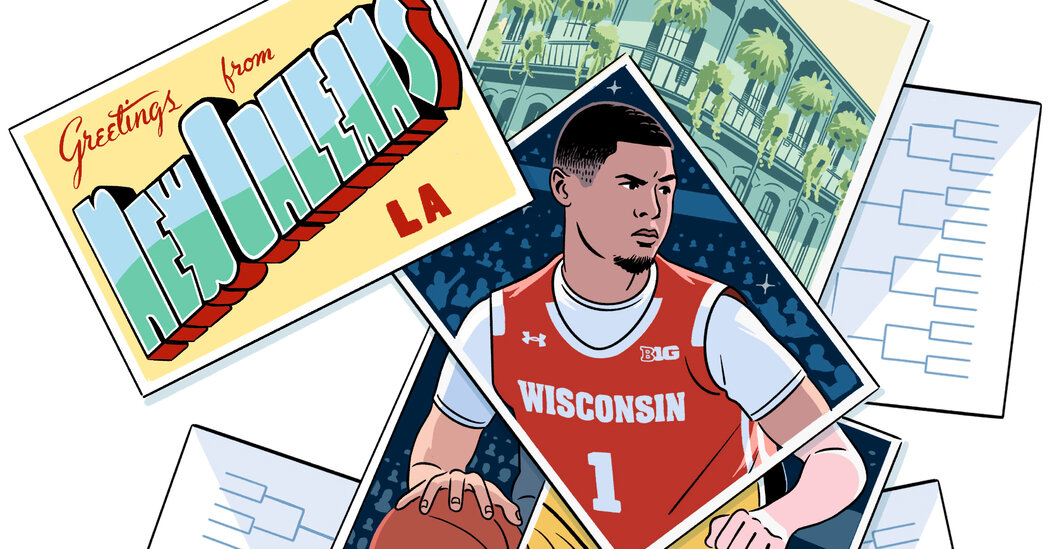On this photograph supplied by Massachusetts Normal Hospital, affected person Mike Garrity, middle, speaks with Drs. Joe Garasic, left, and Randy Zusman in Boston, on Sept. 25, 2024. Credit score: Jeffrey Andree/Massachusetts Normal Hospital through AP
Nothing docs prescribed managed Michael Garrity’s dangerously hypertension—till they zapped away some nerves on his kidneys.
If that sounds bizarre, nicely, kidneys assist regulate blood strain partially by means of indicators from sure nerves. The brand new remedy disrupts overactive renal nerves.
“My blood pressure would spike and I’d run out of breath and feel tired, and that doesn’t happen anymore,” stated Garrity, 62, of Needham, Massachusetts. He nonetheless takes medication however at decrease doses, his blood strain regular for the primary time in years. “I’m thrilled.”
About half of U.S. adults have hypertension, a serious threat for coronary heart assaults, strokes, kidney failure, even dementia. Many individuals do not even notice they’ve hypertension till it is achieved critical harm.
“Know your blood pressure, know the numbers,” careworn Dr. Randy Zusman of Massachusetts Normal Hospital, who specializes within the hardest-to-treat instances and advises individuals who suppose they’re superb to a minimum of get a yearly verify.
And solely a fraction of sufferers have their hypertension well-controlled, which means there is a want for novel methods. The Meals and Drug Administration permitted that “renal denervation” choice a couple of yr in the past, primarily based on research displaying a modest profit in sufferers whose blood strain stays excessive regardless of a number of medicines.
Now, after the American Coronary heart Affiliation lately deemed it promising, some hospitals together with Mass Normal Brigham are cautiously providing it as they work out who’re good candidates—and whether or not their insurance coverage will cowl a minimally invasive process costing 1000’s of {dollars}.
What’s hypertension?
Two numbers describe blood strain. The highest, “systolic” strain, is the drive blood places on the partitions of arteries as its pumped out of the guts. The underside “diastolic” quantity measures that very same strain however between heartbeats.
Regular is lower than 120 over 80. Blood strain naturally fluctuates all through the day, larger whenever you’re bodily lively or careworn. However when it stays excessive—constantly 130 over 80 or larger, in line with the newest pointers—it stiffens arteries and makes the guts work tougher.
How one can measure blood strain
It would not take a health care provider’s go to. Pharmacies and typically even libraries supply screening, and folks can use at-home screens.
To keep away from falsely excessive readings, the American Medical Affiliation has suggestions: Sit quietly with ft on the ground, legs not crossed. Place the cuff on a naked arm, not over clothes. Do not dangle the arm—relaxation it on a desk.
Medicine aren’t the one strategy to deal with hypertension
Life-style modifications are step one, particularly for in any other case wholesome individuals. Tips urge losing a few pounds, train, consuming extra fruit and veggies, limiting salt and alcohol, and taking steps to deal with stress.
Medication is a should as soon as hypertension reaches 140 over 90. The typical affected person requires two or three medicine, typically extra, together with more healthy dwelling, Zusman stated.
However the hypertension Garrity has struggled with since his late 20s is treatment-resistant. Regardless of taking 4 to 6 medicine plus a strict food regimen and train, his blood strain commonly reached 150 over 100 or worse.
What’s renal denervation?
Medical doctors thread a small catheter, or tube, by means of blood vessels to achieve the kidneys, after which beam in ultrasound or radiofrequency power. These pulses move by means of the renal arteries to selectively goal surrounding nerves, stated Dr. Joseph Garasic, a Mass Normal interventional heart specialist who carried out Garrity’s process. It takes about an hour.
Though already utilized in different nations, a key U.S. trial of renal denervation failed a couple of decade in the past, prompting modifications earlier than researchers tried once more. In November 2023, the FDA permitted two catheter programs, from Recor Medical and Medtronic.
It isn’t a treatment—and a few sufferers get no profit. However Garasic stated a number of research present on common an 8 to 10-point drop in blood strain, a modest however essential enchancment. Some like Garrity see a much bigger drop, sufficient to step by step reduce drugs.
The FDA deemed the process secure for rigorously chosen sufferers—it wasn’t examined in these with kidney illness or narrowed arteries, for instance. And research have lasted only some years, not lengthy sufficient to inform if the nerves would possibly finally regenerate.
Steering from the American Coronary heart Affiliation urges would-be sufferers and skilled docs to have “thoughtful and informed discussions” to determine who’s a very good candidate.
© 2025 The Related Press. All rights reserved. This materials will not be revealed, broadcast, rewritten or redistributed with out permission.
Quotation:
Preserving blood strain beneath management is essential. There is a new choice for powerful instances (2025, January 19)
retrieved 19 January 2025
from https://medicalxpress.com/information/2025-01-blood-pressure-critical-option-tough.html
This doc is topic to copyright. Other than any truthful dealing for the aim of personal examine or analysis, no
half could also be reproduced with out the written permission. The content material is supplied for data functions solely.




